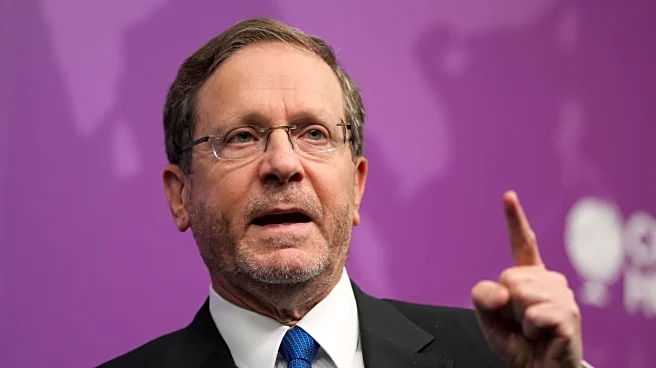What's Happening?
President Trump has announced a rollback of tariffs on various groceries, including coffee, beef, bananas, and tomatoes, in response to rising food prices affecting American consumers. This move contradicts previous claims that tariffs were not impacting
retail prices. The decision comes amid public opposition and eroding support on Capitol Hill, as well as a potential challenge before the Supreme Court. The rollback is part of a broader strategy to address economic concerns and improve consumer affordability. The administration aims to balance trade agreements with tariff reductions to mitigate the impact on consumer prices.
Why It's Important?
The rollback of tariffs is significant as it addresses the growing concern over high food prices, which have been a major issue for American consumers. The decision reflects the administration's need to adapt its economic strategy in response to public pressure and electoral outcomes. The move could potentially ease the financial burden on consumers, especially those affected by inflation. However, it also highlights the complexities of trade policies and their impact on domestic markets. The administration's approach to tariffs and trade agreements will be crucial in shaping future economic policies.
What's Next?
The administration may continue to adjust its trade policies to address consumer concerns and improve affordability. Monitoring the impact of tariff rollbacks on food prices will be essential in evaluating the effectiveness of these measures. The upcoming congressional elections could further influence policy decisions, as public opinion on tariffs remains a critical factor. The Supreme Court's decision on the legality of tariffs could also have significant implications for the administration's trade strategy.
Beyond the Headlines
The rollback of tariffs raises questions about the long-term viability of protectionist trade policies and their impact on consumer prices. The administration's approach to balancing trade agreements with domestic economic needs will be crucial in shaping future policies. The situation underscores the importance of addressing inflation through comprehensive economic strategies that consider both international trade and domestic market dynamics.
















